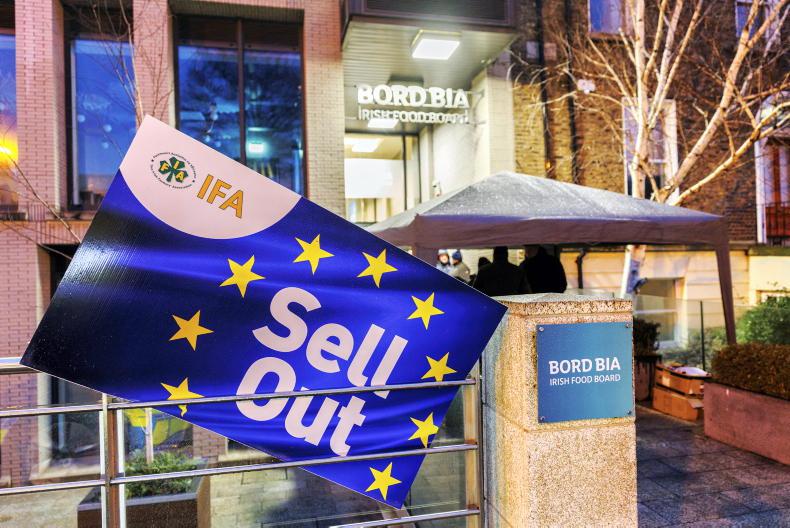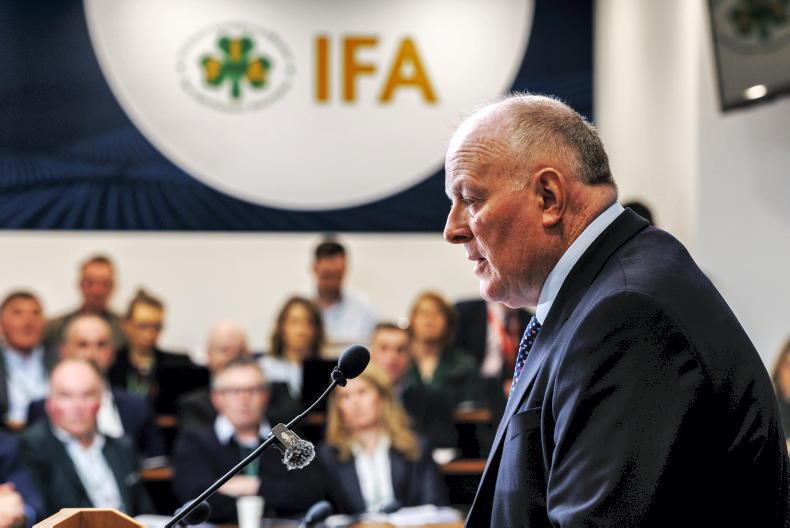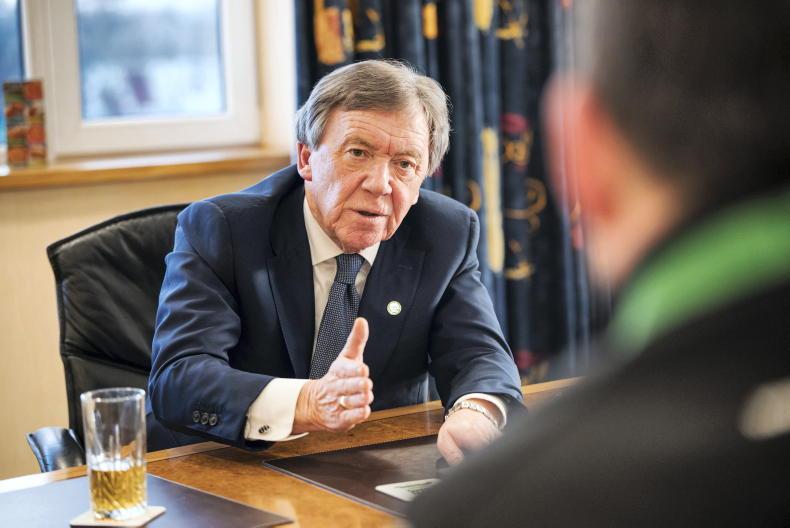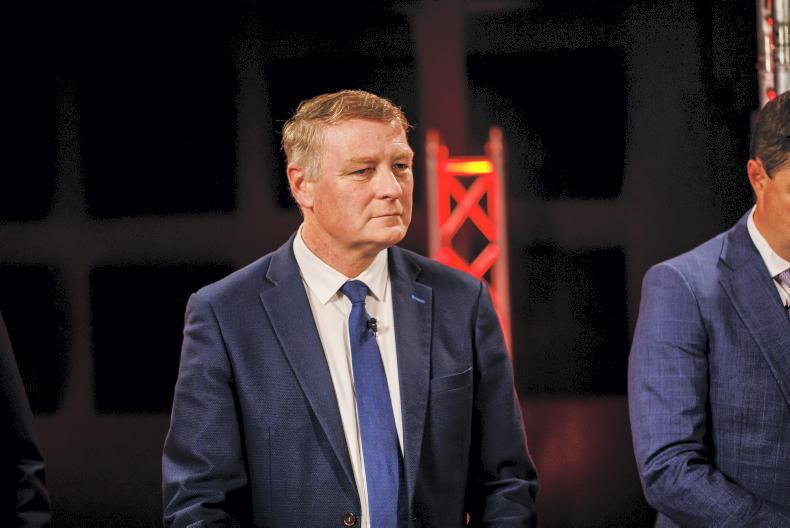As Tim Cullinan prepares to pass the Irish Farmers' Association (IFA) presidency baton to Francie Gorman, it is timely to reflect on the challenge of leading any organisation at the close of the first quarter of the 21st century.
The challenge facing any organisation's leadership team in the current era is functioning alongside instant communication, which can be either a blessing or a curse. Perhaps in the social media age, it is more often the latter.
When an issue goes viral on X - formerly Twitter - or indeed any other social media platform, the least priority is thoughtful comment. It is often the case of whoever shouts loudest or has the most dramatic comment that sets the agenda.
Good and bad
Social media platforms can be an excellent forum for highlighting what has gone wrong or shining a light on wrongdoing that may not have been picked up by mainstream media previously.
However, they are rarely, if ever, a forum for constructive debate on policy formation or putting in place a strategy for a sector as large and diverse as Irish farming.
All of the mainstream farm organisations predate the social media age. In their formative years, the branch structure was the strength.
Branch meetings were where ordinary farmers debated the issues of the day and delegates were sent forward to county, regional and ultimately national level and post was used for general communication.
While this is antiquated in the modern era and communication by text message, WhatsApp and email provide instant engagement, the human touch gets lost or at least diluted along the way.
Unfortunately, branch meetings in most organisations have gone the way of attendance at religious services - sporadic at best and it takes special occasions to draw a crowd.
Power of the soundbite
The other reality is that social media works best with a simple three- or four-word message.
'Get Brexit done' was the slogan that won an election for Boris Johnson in the UK and a '£350m for the NHS' slogan on the side of a bus was key in persuading the UK electorate to vote for leaving the EU.
Closer to home, we had, for a period of time, a WhatsApp-based group that attracted widespread support from hard-pressed beef farmers at a time when prices were on the floor.
Unfortunately, the issues around farming are too complex to fit neatly into a soundbite. Not only are there diverse interests between the different farming sectors, there are also diverse interests within farming sectors between large and small farmers.
Nothing illustrates this better than the policy of convergence, where the last CAP reform penalised intensive farmers on small acreages, while rewarding extensive farmers with larger acreages.
United we stand, divided we fall
This diversity of interests means sector-specific lobby groups and if they are effective campaigners will succeed in getting their voice heard.
It isn’t enough anymore for the IFA to meet a Minister on behalf of their tens of thousands of members and expect that their voice alone will carry the day, especially if there is a counter view gaining traction on social media.
The challenge for the incoming president and his leadership team is to find a way that gives a voice to all farmers.
On the hustings, reference was made to working with others outside the organisation and that is key to getting the farmers' voice heard.
If there are multiple voices with different messages in the Minister’s ear, it gives the Minister of the day a free pass to do whatever they prefer.
In his victory speech, Francie O’Gorman referred to the IFA motto of unity, strength and delivery. If he can achieve unity and strength beyond the IFA as well as inside the organisation, his chances of delivery will be maximised and every farmer inside or outside the organisation should wish him well in these efforts.
Read more
Taoiseach to address IFA AGM
IFA's 69th Annual General Meeting to take place
In pictures: Laois man Francie Gorman elected 17th president of the IFA
As Tim Cullinan prepares to pass the Irish Farmers' Association (IFA) presidency baton to Francie Gorman, it is timely to reflect on the challenge of leading any organisation at the close of the first quarter of the 21st century.
The challenge facing any organisation's leadership team in the current era is functioning alongside instant communication, which can be either a blessing or a curse. Perhaps in the social media age, it is more often the latter.
When an issue goes viral on X - formerly Twitter - or indeed any other social media platform, the least priority is thoughtful comment. It is often the case of whoever shouts loudest or has the most dramatic comment that sets the agenda.
Good and bad
Social media platforms can be an excellent forum for highlighting what has gone wrong or shining a light on wrongdoing that may not have been picked up by mainstream media previously.
However, they are rarely, if ever, a forum for constructive debate on policy formation or putting in place a strategy for a sector as large and diverse as Irish farming.
All of the mainstream farm organisations predate the social media age. In their formative years, the branch structure was the strength.
Branch meetings were where ordinary farmers debated the issues of the day and delegates were sent forward to county, regional and ultimately national level and post was used for general communication.
While this is antiquated in the modern era and communication by text message, WhatsApp and email provide instant engagement, the human touch gets lost or at least diluted along the way.
Unfortunately, branch meetings in most organisations have gone the way of attendance at religious services - sporadic at best and it takes special occasions to draw a crowd.
Power of the soundbite
The other reality is that social media works best with a simple three- or four-word message.
'Get Brexit done' was the slogan that won an election for Boris Johnson in the UK and a '£350m for the NHS' slogan on the side of a bus was key in persuading the UK electorate to vote for leaving the EU.
Closer to home, we had, for a period of time, a WhatsApp-based group that attracted widespread support from hard-pressed beef farmers at a time when prices were on the floor.
Unfortunately, the issues around farming are too complex to fit neatly into a soundbite. Not only are there diverse interests between the different farming sectors, there are also diverse interests within farming sectors between large and small farmers.
Nothing illustrates this better than the policy of convergence, where the last CAP reform penalised intensive farmers on small acreages, while rewarding extensive farmers with larger acreages.
United we stand, divided we fall
This diversity of interests means sector-specific lobby groups and if they are effective campaigners will succeed in getting their voice heard.
It isn’t enough anymore for the IFA to meet a Minister on behalf of their tens of thousands of members and expect that their voice alone will carry the day, especially if there is a counter view gaining traction on social media.
The challenge for the incoming president and his leadership team is to find a way that gives a voice to all farmers.
On the hustings, reference was made to working with others outside the organisation and that is key to getting the farmers' voice heard.
If there are multiple voices with different messages in the Minister’s ear, it gives the Minister of the day a free pass to do whatever they prefer.
In his victory speech, Francie O’Gorman referred to the IFA motto of unity, strength and delivery. If he can achieve unity and strength beyond the IFA as well as inside the organisation, his chances of delivery will be maximised and every farmer inside or outside the organisation should wish him well in these efforts.
Read more
Taoiseach to address IFA AGM
IFA's 69th Annual General Meeting to take place
In pictures: Laois man Francie Gorman elected 17th president of the IFA









SHARING OPTIONS